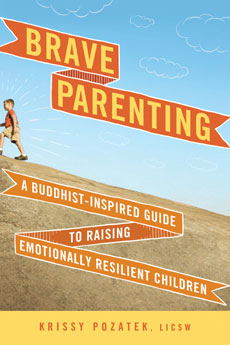"Kids feel empowered and in charge of their lives if we let them solve their own problems. When we let the boulder stay on our daughter's trail, or the problem stay in our son's lap, they process their emotions in more fluid ways, rather than getting stuck and looking for an escape or for us to fix it. Many kids that go toward drugs and deception actually use quite a bit of intelligence and savvy to go around the rules. How do we let kids use this natural intelligence to pursue healthy goals? We have to ask them to be problem solvers. We have to let go of control and invite in the unknown. I remember when my young daughter wanted to empty the dishwasher, I was reluctant at first, since I didn't know where she would put everything, yet she stacked bowls in a cabinet drawer and actually got them all to fit in a way that I was never able to before. She solved the problem better than I had.
"We have to value and uphold family participation if we want kids to engage in family life. One problem is that so many parents in the professional middle class — who are successful in their careers — are skilled problem solvers. Many parents' default settings are to instantly search for solutions. Many parents have told me that every day in their professions they are solving problems, managing people (staff), and anticipating and managing risk. When they come home, they employ the same skills with their kids. Parents need to refrain. Kids aren't getting stuck when we leave a problem in their lap; they're learning how to stay with struggle and discomfort and how to self-manage and self-regulate. This process creates the opportunity to boost confidence, self-esteem, and self-mastery. We're communicating a level of trust in their abilities. We don't have to be parents 200 percent of the time."
